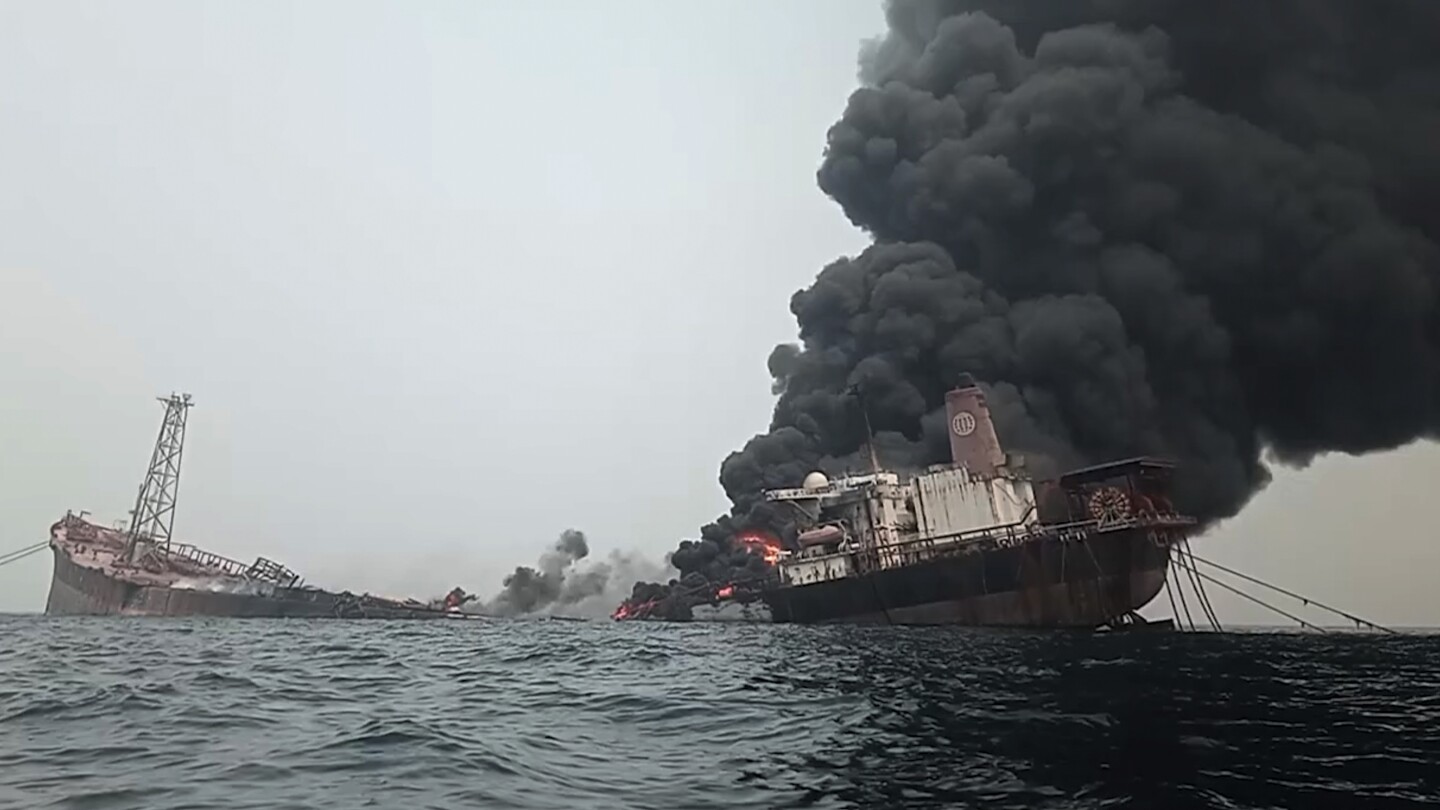The explosion that night woke him and knocked him to the floor. He tucked his phone and his ID card in his pockets, strapped on a life jacket and made his way to the upper deck. As the flames barreled toward him, he prepared to jump nearly 100 feet (30 meters) into the sea.
Patrick Aganyebi, a maintenance operator aboard the Trinity Spirit oil ship, holds up his ID card in his home in Igbokoda, Nigeria, on Tuesday, Sept. 6, 2022. Days after being hospitalized from the injuries they sustained escaping the fire on the Trinity Spirit, Aganyebi and his colleague Pius Orofin learned they were being sent to jail, accused of conspiring to commit “Murder, Arson, and Malicious Damage,” according to charging documents.
Five workers were killed and two others presumed dead in the blast on the Trinity Spirit, a rusting converted oil tanker anchored 15 miles (24 km) off the coast of Nigeria that pulled crude oil from the ocean floor. It was by the grace of God, Aganyebi said, that he and two fellow crewmen escaped, rescued by a pair of fishermen as the burning vessel sank along with 40,000 barrels of oil.
The Trinity Spirit’s explosion in February of last year stands among the deadliest tragedies on an oil ship or platform in recent years. The Associated Press’ review of court documents, ship databases, and interviews with crew members reveals that the 46-year-old ship was in a state of near-total disrepair, and the systems meant to ensure its safe and lawful operation — annual inspections, a flag registry, insurance — had gradually fallen away.


